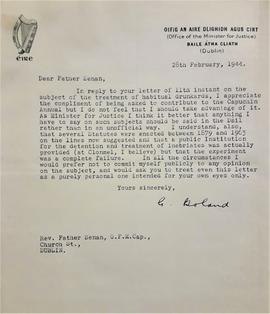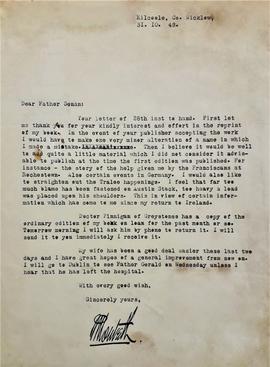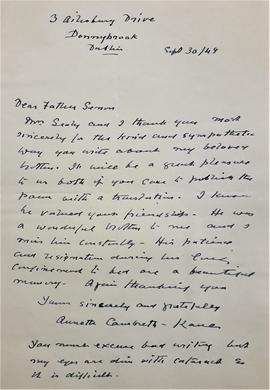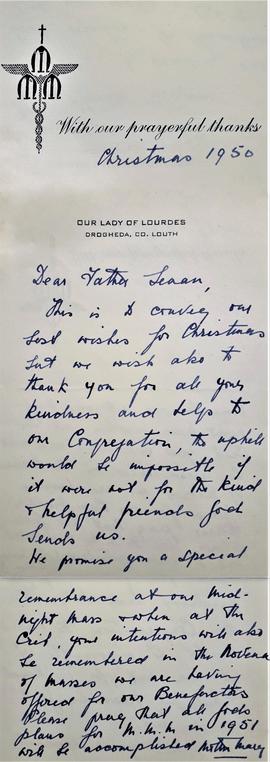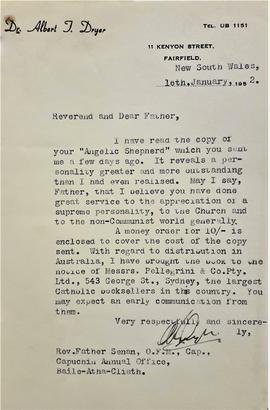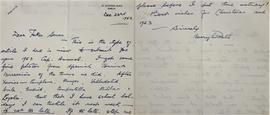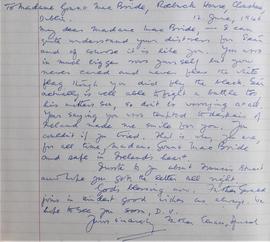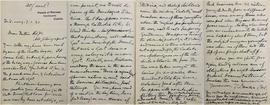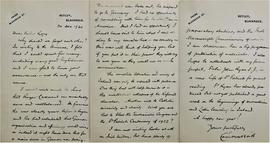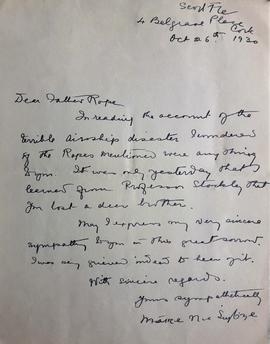A letter from Fr. Thomas Dawson OMI (1850-1939), Oblate House of Retreat, Inchicore, Dublin, to Fr. Henry Rope. Dawson includes a description of the events of Bloody Sunday in Croke Park on 21 November 1920. He writes 'sixteen young students, from a different house, were among those who escaped when they saw the armed forces coming. As they clambered over the embankments, the bullets were hopping about them, but the only hit among our youngsters was when one of them had the top of one finger shot off'. He also refers to a raid on the Oblate house of studies (most likely Belmont House in Stillorgan) and to the rough treatment meted out by the soldiers.

